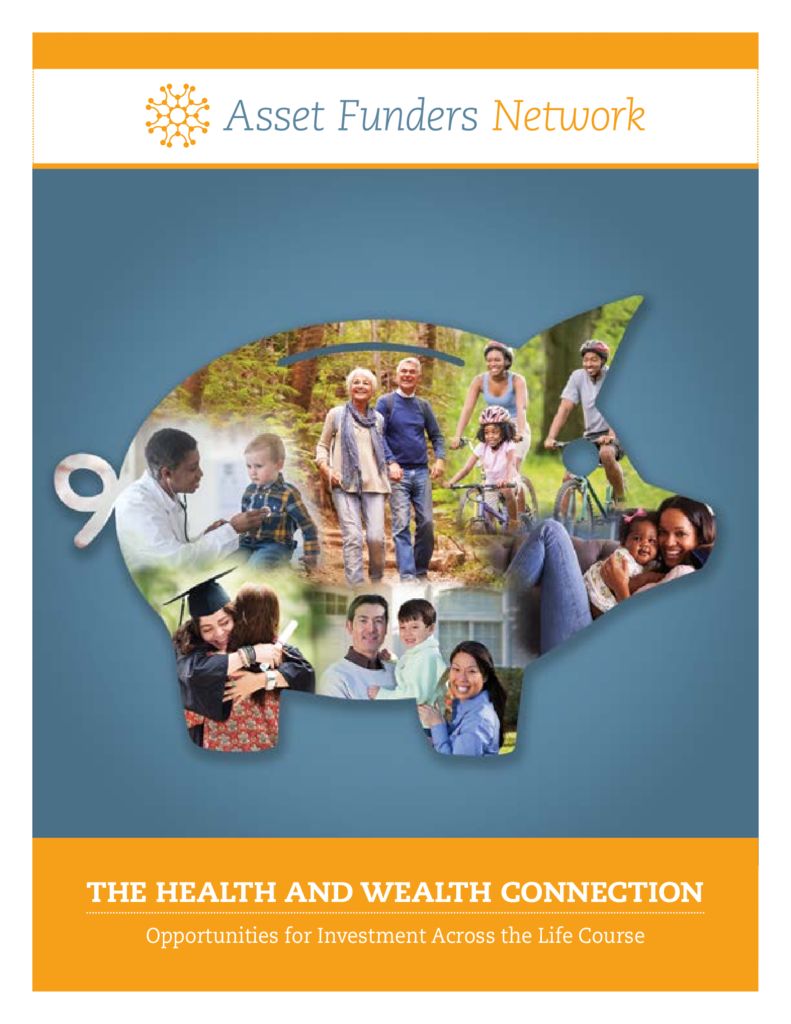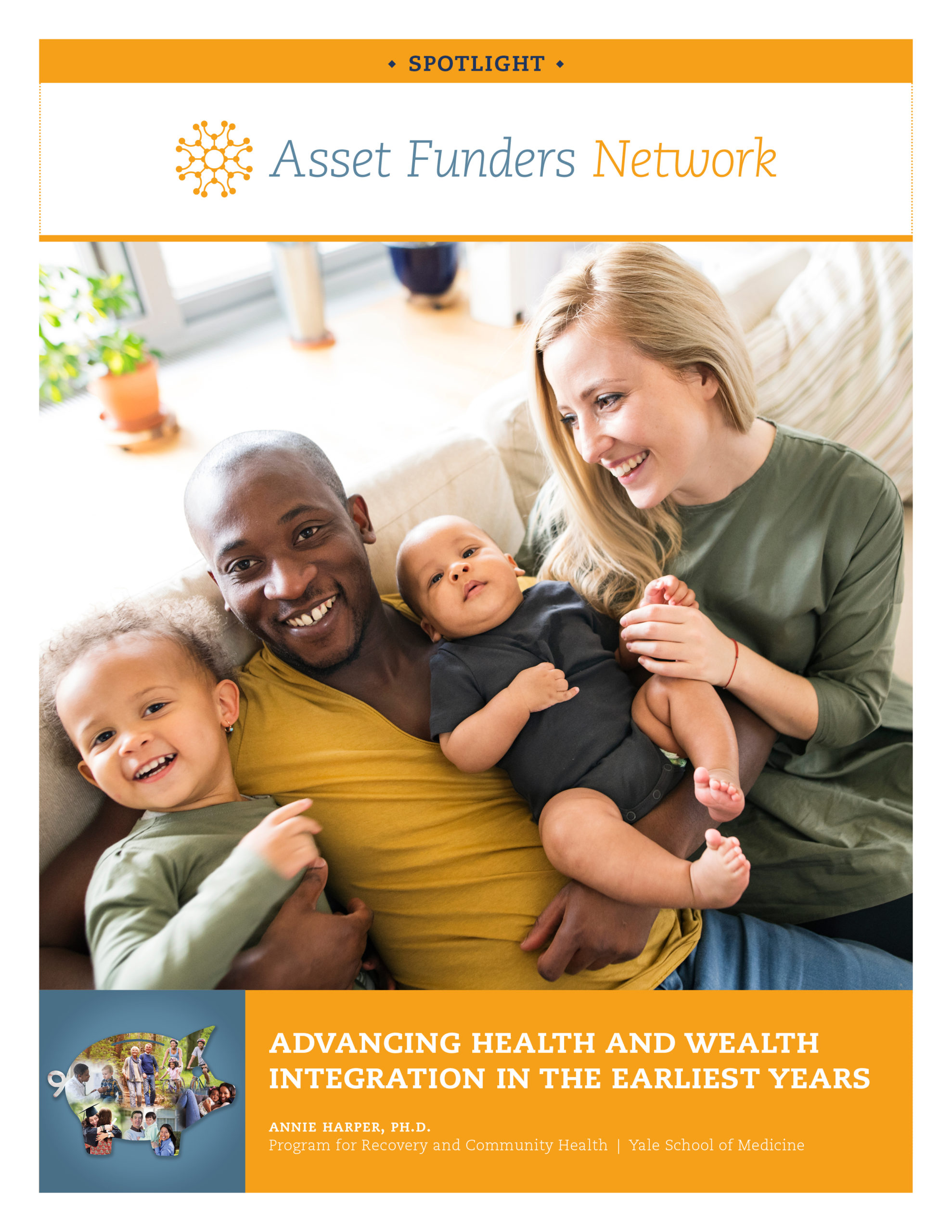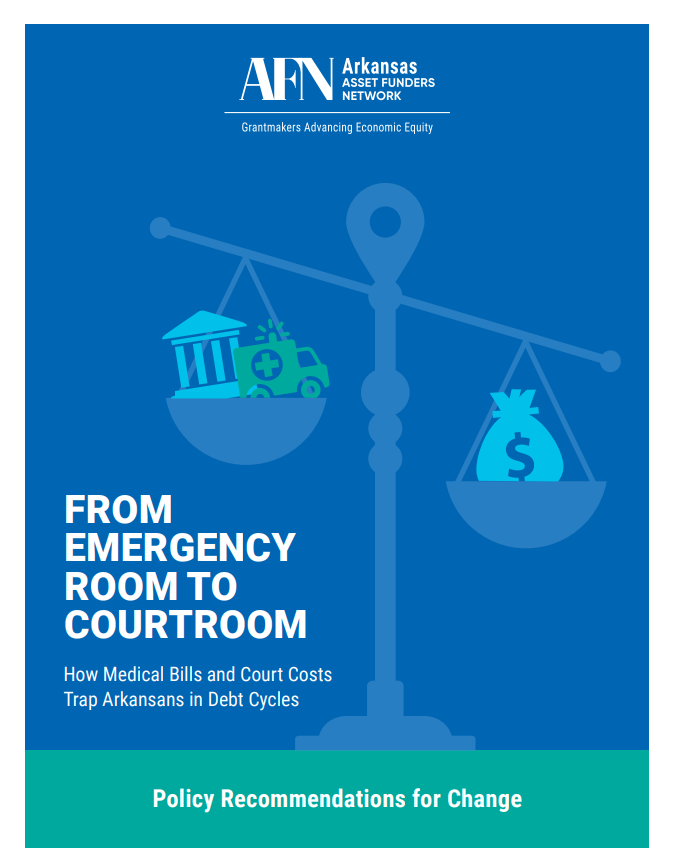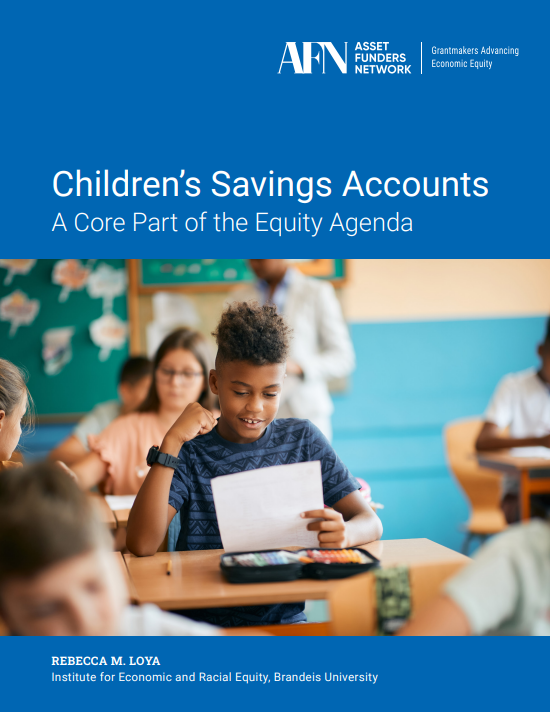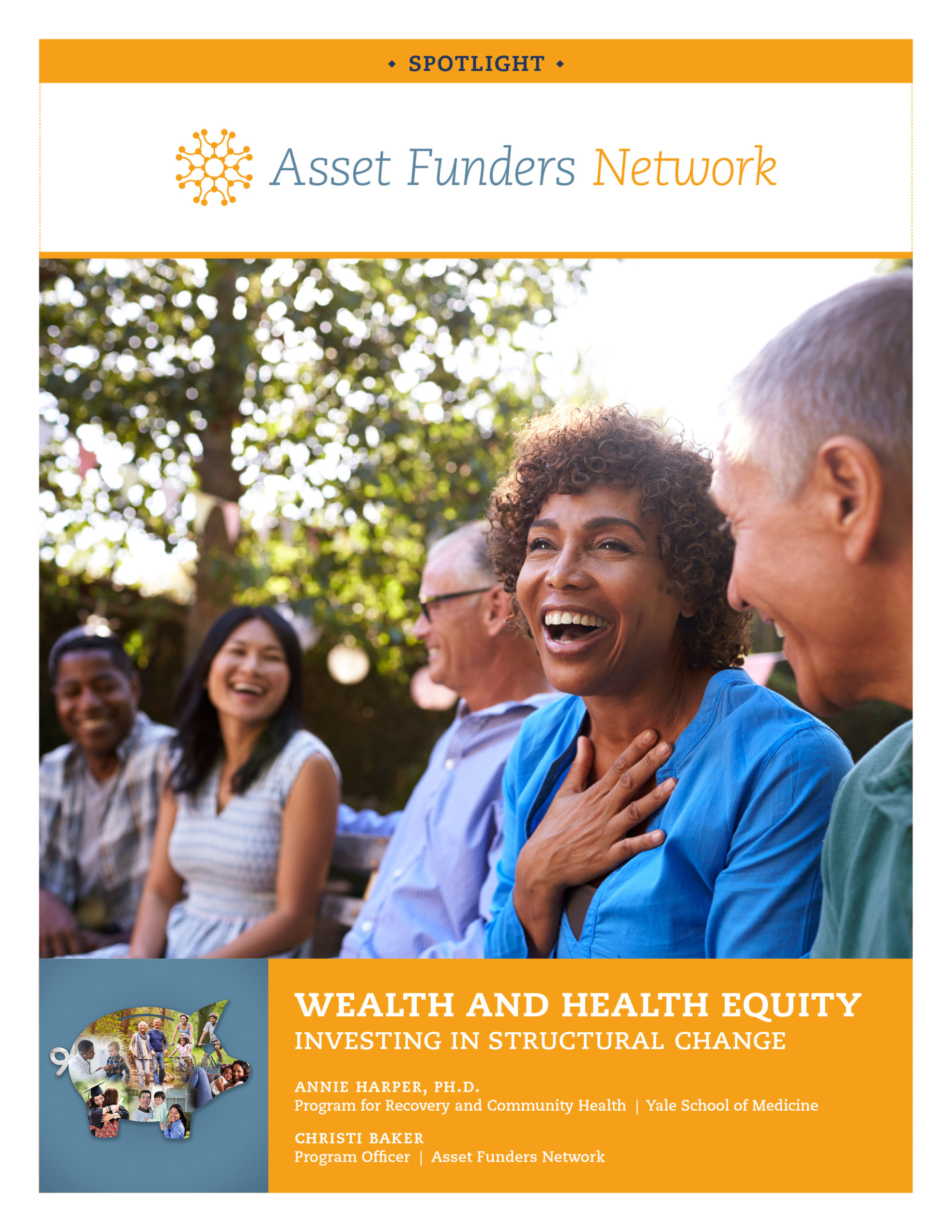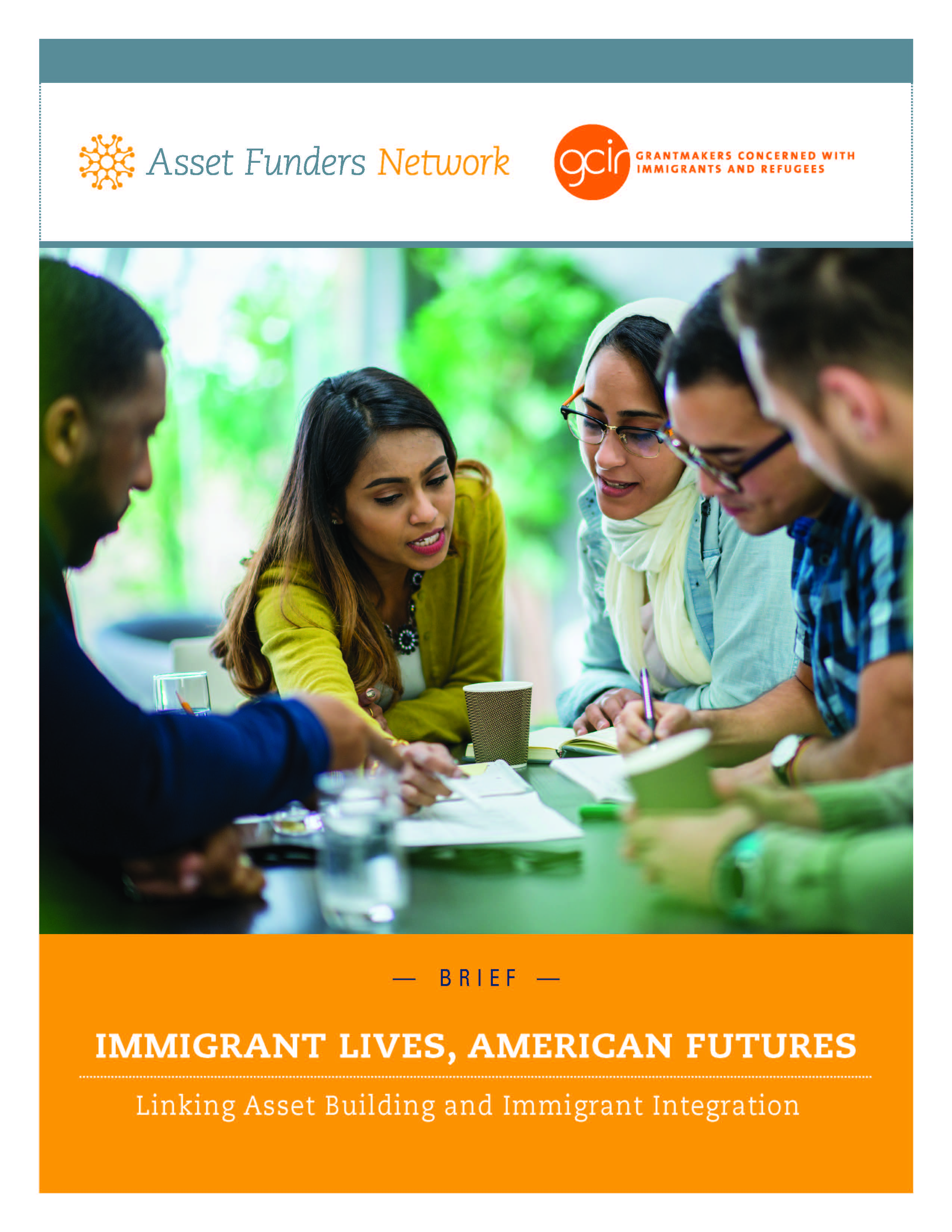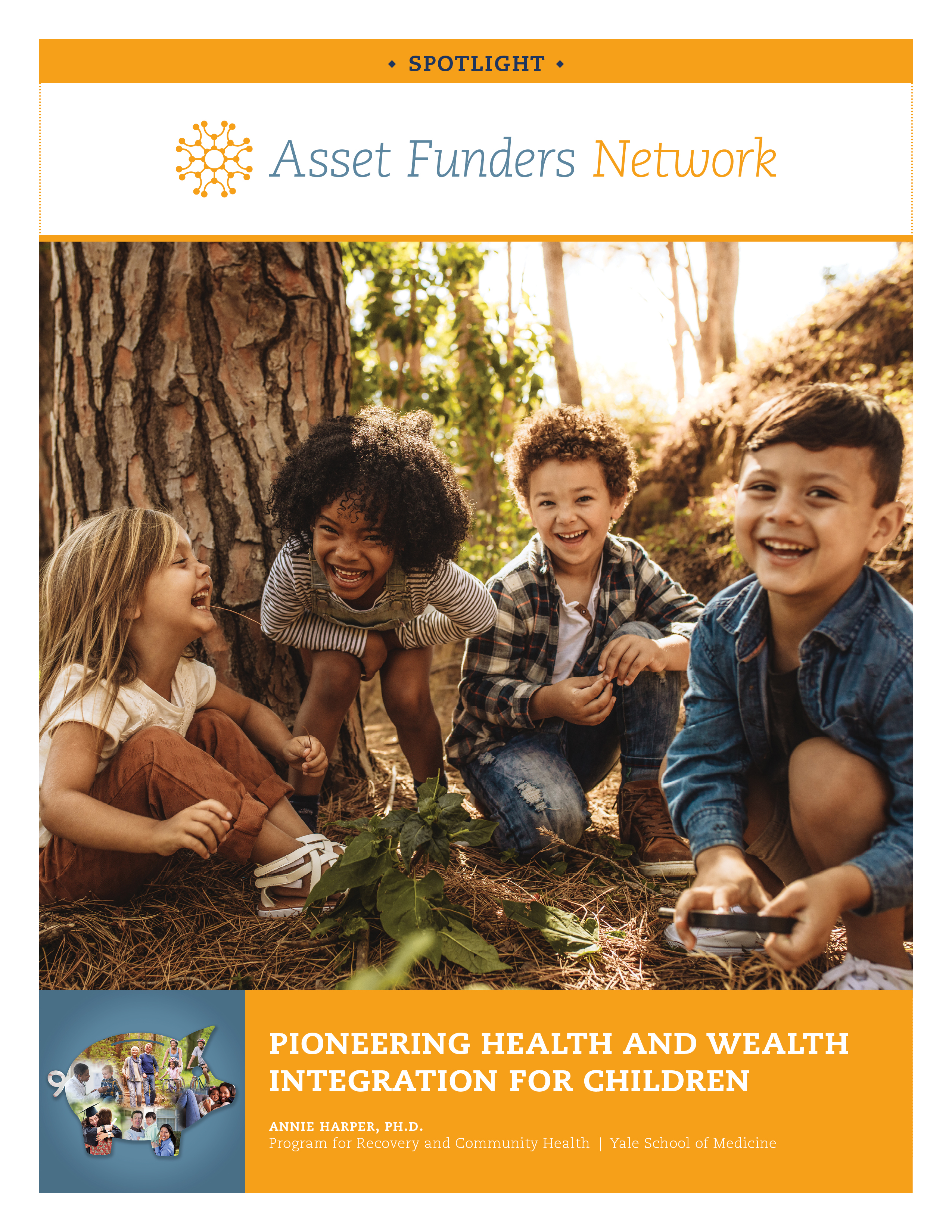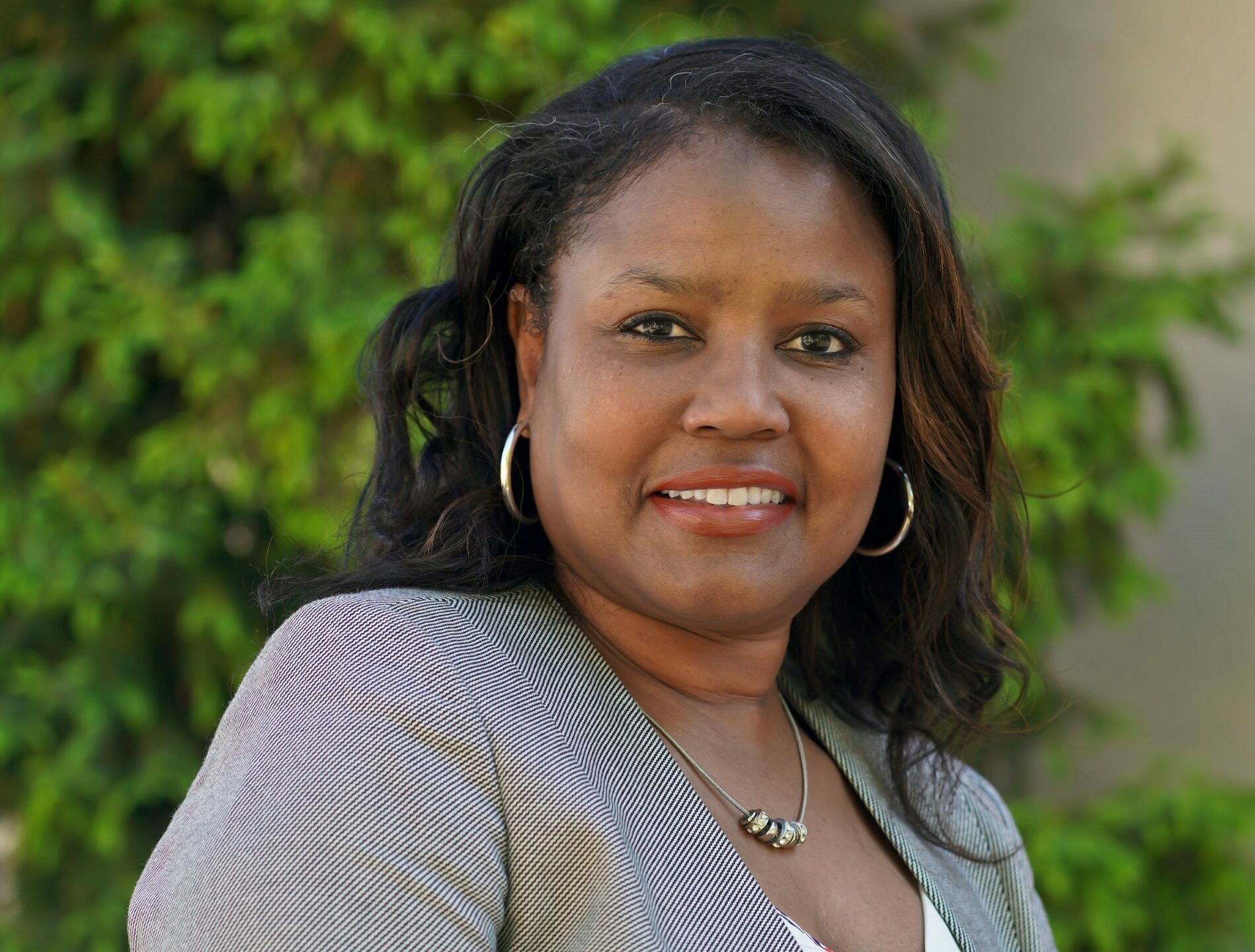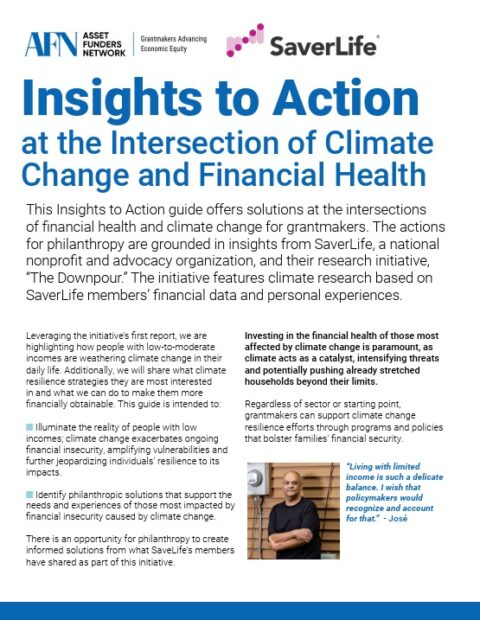
The conditions in which people are born, grow, work, and age determine their health. So it makes sense that individuals living paycheck to paycheck feel it in their health status. If they live in substandard housing in a food and bank desert as well, health suffers. If they don’t have access to a safe place to play, or medicine for a chronic condition, then their lack of wealth has, indeed, adversely impacted their health.
Like ripples made from a stone dropped in a lake, the move to economic security increases a person’s sense of agency and the ability to make sound choices. This forward thinking predicts wealth-building and health-promoting behavior. Wealth building and health improving occurs at the five major stages of our life cycle, and grantmakers are learning ways to impact each. AFN members find promise in these connections, and leverage them in their grantmaking.
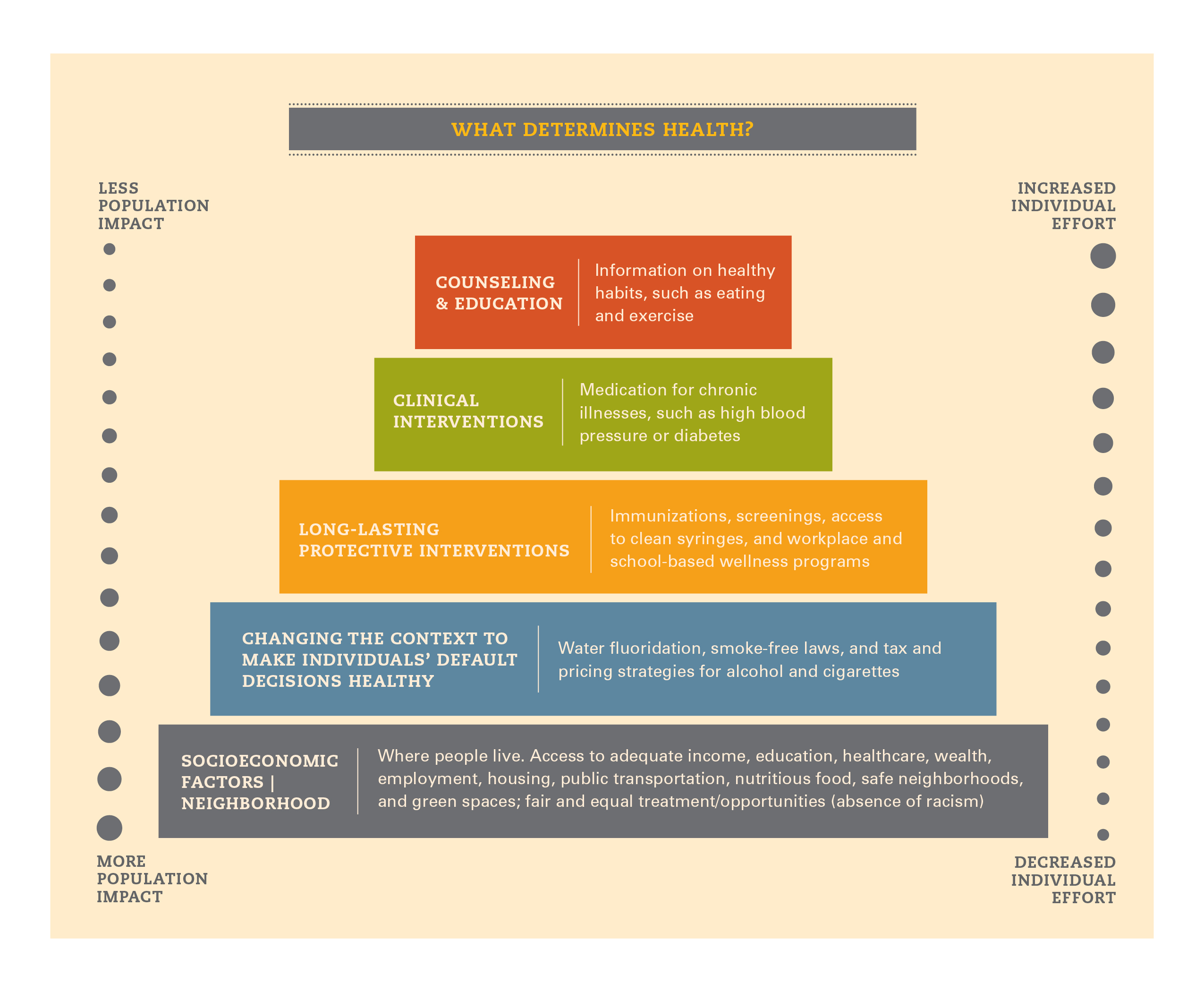
Our knee bone’s connected to our shin bone, and our wealth and health are inextricably linked too.
AFN’s brief The Health and Wealth Connection helps grantmakers connect the dots and explore programs that make a difference.
The Health & Wealth Connection for Young Children
Building off AFN’s Health and Wealth Connection, AFN’s newest report, explores how children in the earliest months and years of life are impacted by the bidirectional health-wealth connection more intensely than any other age group.
Why It’s Important
Given the strong connection between wealth and health, funders who invest in building assets are also investing in health.
Lower death rates
Lower rates of chronic diseases
Improved mental health
Better ability to function in daily life
Lower rates of smoking and excessive alcohol use
Lower obesity rates in children
Grantmaking Strategies
Health researchers are looking beyond the impact of income, education, and occupation to also study how overall wealth impacts our health. There are certainly biological consequences of chronic stress on our bodies.
Without assets, people just make ends meet, and are less able to have the future-oriented thinking that enables us to care for our health. Or worse, income instability—due to just-in-time scheduling and gig work—deprives families of an income cushion, which increases anxiety, stress, and a loss of a sense of control.
Given the strong connection between wealth and health, funders who invest in building assets are also investing in health. One way of achieving those dual aims is by pairing investments in financial well-being and health at critical stages in the life course. Funders have investment opportunities to spur health/wealth connections at each stage across the life course continuum from prenatal and early childhood through older adulthood.
Often, the most encouraging solutions integrate financial coaching and related tools into existing health programs. This may include savings tools, how to escape predatory debt, and guidance on how to achieve financial goals.
In the 0-3 years stage, community development investments include affordable, quality child care and safe family-friendly neighborhood resources (e.g., libraries, parks, community centers). These free learning spaces can allow families to use savings for other investments.
Other tactics to boost financial security in this early life stage link to CSAs, tax preparation, and small-dollar loan products. Solutions for older adulthood (50-70+) include accessible community health workers who help seniors access care, fill prescriptions, and remain financially secure and in their homes.
AFN is currently gathering knowledge on which strategies best serve millennial adult women, how to prevent women ages 45-60 from sliding into retirement poverty, how to use employers as a more effective platform for asset building, and more.
By sharing smart grantmaking strategies and when along the lifecycle continuum they are most effective, AFN members can make their investments more effective.
““Right now, some of us have access to quality health care, are living in safe and affordable housing, eating nutritious food, and are unhindered in shaping community conditions through full participation in democracy. Some of us are not. We know it’s not the people who need to be fixed; it is the systems we live within that are broken, systems that through policies, practices, and decisions inequitably distribute power, money and resources.”
Angelique Williams | Health Forward Foundation
Accelerating Ideas Into Action
At the Intersection of Health, Wealth, and Community: Grantmaker Roles and Integrated Approaches
At the AFN May 2019 conference Accelerating Ideas into Action, we explored the ways where we live, work, and play, influences our ability to build assets, and shared how grantmakers are joining forces to invest in neighborhood development and individual wealth building to yield better individual asset and community outcomes.
